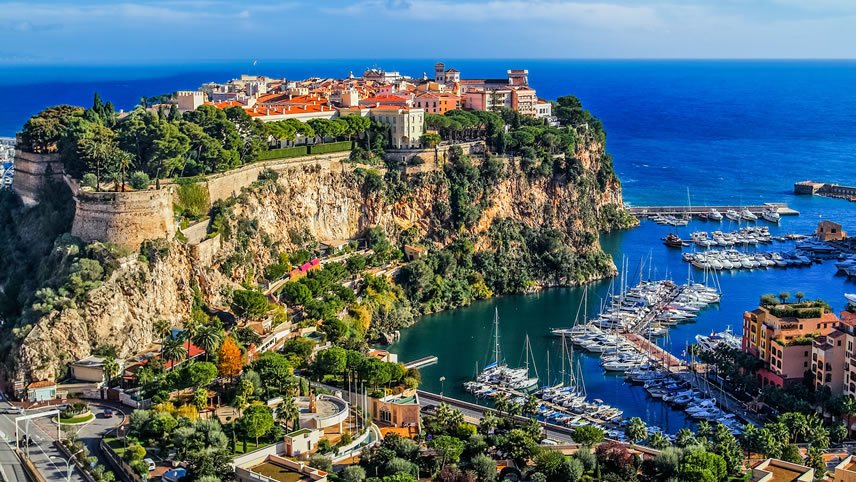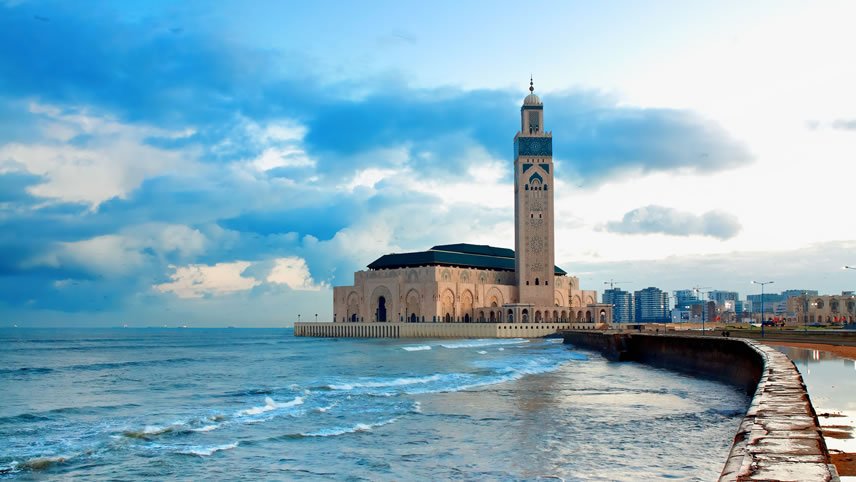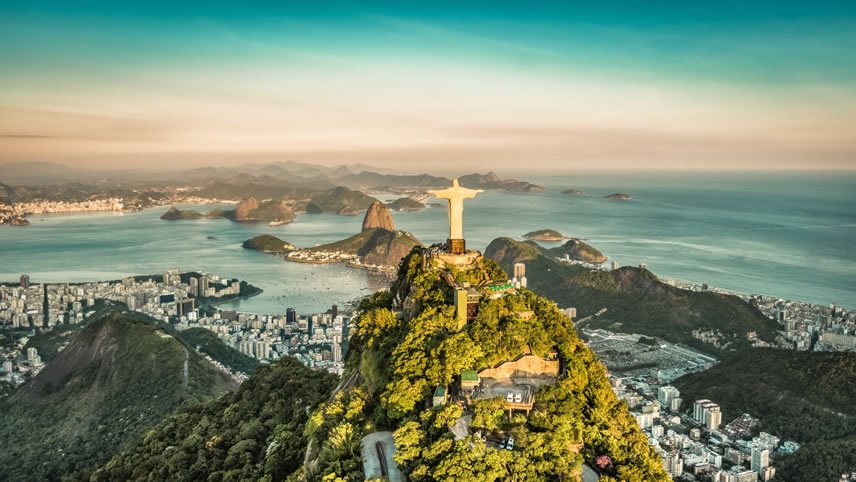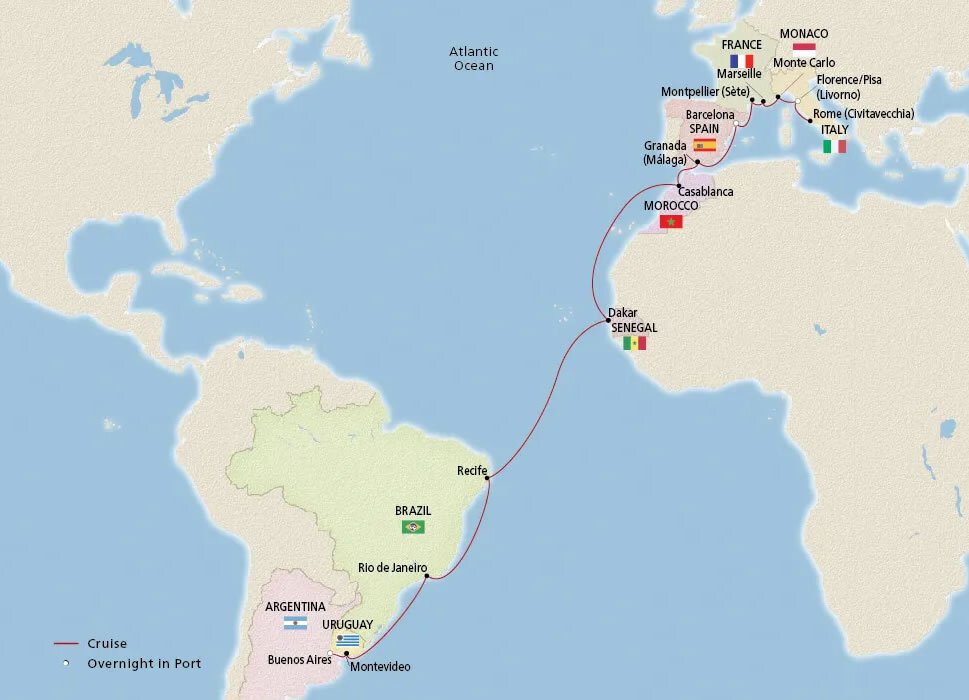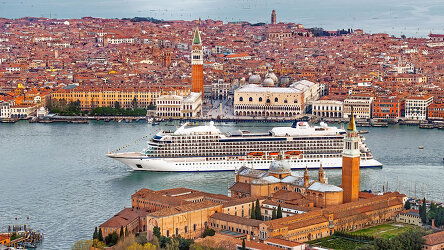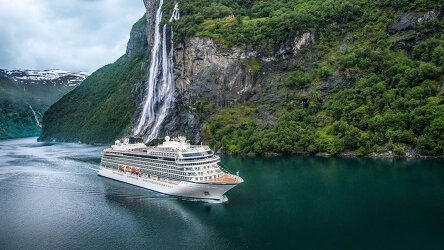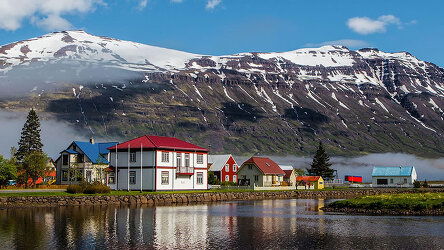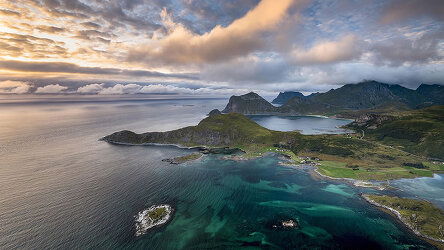Overview
Itinerary
Embark your ship and settle into your stateroom. For centuries, Rome ruled much of Europe, building a vast empire from the power of emperors. More than 2,500 years of history live in the city's streets. Ancient structures recall those heady days when the cheers of 80,000 spectators roared from the Colosseum, citizens mingled in the Forum and senators asked the gods for guidance at the Pantheon. Along with the Vatican and St. Peter's Basilica, this rich pocket of Italy is one of the world's greatest repositories of history and civilization.
Tuscany is known equally as the cradle of the Renaissance and a center of culinary delights and astounding wines. Throughout this emerald-green countryside dotted with cypress trees, endless delights unfold. Among them is Florence, a living museum of the Renaissance. Brunelleschi's famous Duomo dominates the medieval cityscape—an architectural achievement. Another Tuscan treasure, the Square of Miracles, unfolds in Pisa. Here, a trinity of masterpieces—the Leaning Tower, Pisa Cathedral and Baptistery—comprise some of Europe's finest art and architecture.
Tuscany is known for its scenic beauty and exudes a unique, rustic character. Vineyards, olive tree groves, wheat fields and endless expanses of farmland skirt the bases of medieval hill towns as they march across an undulating landscape of gentle hills. Fertile soils produce some of the world's finest wines, including Chianti and Vino Nobile di Montepulciano. More than this, many consider Tuscany the birthplace of the original farm-to-table movement. Simple, honest food graces the Tuscan table, from creamy cheeses to thick Florentine steak grilled over a wood fire.
The chic city of Monte Carlo in the petite kingdom of Monaco boasts some of the world's most exclusive shopping and a beautiful old port. A fairy-tale aura has settled on this glittering city of the Grimaldi family, perhaps nowhere more elegantly than at the Prince's Palace, where the late American actress-turned-princess Grace Kelly presided with Prince Rainier III. Monte Carlo's medieval quarter perches on “The Rock,” an escarpment at the foot of the Maritime Alps, and offers spectacular views of the Mediterranean and the harbor lined with mega-yachts.
Marseille is rich in historic treasures, nestled between the Mediterranean and rocky hills of limestone. Two 17th-century fortresses dominate the charming Vieux Port, or Old Port, the natural harbor that hosts all manner of watercraft, from sleek elegant yachts to old style fishing vessels. Its picturesque quay is one of the world's most romantic walks, lined with dozens of cafés and shops. Also worth exploring is the city center, graced by La Canebière boulevard. Linger in a café and sample the city's signature bouillabaisse made from freshly caught fish.
Montpellier has been a center of learning for centuries. Its namesake university, founded in 1160, is one of the world's oldest, predating the Renaissance. Still, a student population breathes life into a vibrant culture. The social and cultural center of Montpellier is the Place de la Comédie, anchored by the elegant Three Graces fountain and the neoclassical Opéra Comédie. Other sites pay tribute to a rich heritage, from the art-filled Musée Fabre and impressive St. Clément Aqueduct to the St. Pierre Cathedral with its 'floating' porch supported by a pair of towers.
The vibrant city of Barcelona, with its lively culture and inviting outdoor spaces, preserves a rich history. Picturesque medieval lanes wind through the oldest part of the city, the Gothic Quarter, where remnants of the city's Roman wall were uncovered. Its treasures include the neo-Gothic Barcelona Cathedral, the medieval Jewish district of El Call and the Romanesque Church of Santa Maria del Pi.
In the evenings, diners relax in the Royal Plaza at restaurants along the elegant square's perimeter.
Barcelona is steeped in history, with stunning architecture and a rich culture. Mediterranean breezes grace the shore and Catalonia's capital is a feast for the senses. Long strolls on wide boulevards—such as Las Ramblas, the mile-long leafy pedestrian way, and the Passeig de Gràcia, lined with some of Europe's most elegant buildings—set the tone for a city that moves to its own tempo. Native son and famed architect Antoni Gaudí adorned his city with whimsy, whether along fantastical city blocks or with his colossal masterpiece, the towering La Sagrada Família cathedral.
Barcelona enjoys a leisurely pace that is best expressed at its local tapas bars, where patrons nibble on small yet flavorful dishes one plate at a time with a glass of Rioja. Traditional tapas bars display warm and cold items in a glass case, many of them intensely flavored with garlic or chilies. Each dish is served with a toothpick, which diners save to tally how many items they have consumed. Well-known classics, such as tortillas, can be found in most eateries alongside escalivadas, a typical Catalonian tapa of grilled eggplants, peppers and onions topped with tuna or anchovies.
Sail the ocean stage on which civilizations have risen and fallen, where empires ventured forth in their great armadas to control these strategic waters. Enjoy the amenities of your ship as you sail. Perhaps take a breath of fresh air on a brisk walk around the Promenade or begin your day with a workout in the well-equipped Fitness Center.
Granada is a splendid canvas of Moorish architecture, rich Andalusian tradition and remarkable history. It was the last stronghold of the Moorish Nasrid dynasty, whose 250-year reign ended during the 1492 reconquest of Spain by Catholic monarchs. The grand Granada Cathedral is a soaring celebration of that victory; its Royal Chapel holds the tombs of Queen Isabel and King Ferdinand, the celebrated pair who oversaw the triumph. Their magnificent fortress-palace, the Alhambra, was long the stronghold of Moors, and so offers a magnificent blend of Islamic and Christian detail.
Casablanca lures visitors with its heady mix of neo-Moorish splendor and French influence. Known as “Casa” to locals, its streets exude an atmosphere of bygone days. Made famous by the 1942 eponymous film, today it is one of Africa's most important ports. Parisian-style boulevards unfold past cafés and colonial buildings. The city's medina is a maze of warrens pulsing with old-world energy, the hollers of carpet merchants and the fragrance of incense. The most impressive structure is the Hassan II Mosque, the country's largest and most magnificent.
Sail the Atlantic Ocean, divided in half, north to south, by the Mid-Atlantic Ridge. Longer than the Rockies, the Himalayas and the Andes combined, this underwater mountain range is the longest on Earth. As you sail, take advantage of the array of delicious cuisine offered on board. You may visit Mamsen's, our casual gourmet deli, any time from early morning to late at night for a taste of traditional Norwegian fare. Or, dine at Manfredi's and savor an authentic Italian meal, with options ranging from Milanese risotto to Tuscan inspired classics.
Dakar exudes the rich authenticity and vibrancy of the real Africa. Spread across the triangular shape of the Cape Verde Peninsula, this ever-evolving city clings to long-held traditions. Today, accents from the city's days as the capital of French West Africa are everywhere, from the impressive Hôtel de Ville de Dakar to the facade of the railway station. A recent landmark, the ambitious Monument of the African Renaissance, stands atop a hill outside Dakar. The tallest statue on the continent, it commemorates the 50th anniversary of Senegal's independence from France.
Sail legendary waters, where medieval Europeans believed “there be dragons” beyond the ocean's horizon. As you sail, explore our well-curated Library, tucked in a private alcove of the Living Room, and select from a broad range of titles. Read a book by the Main Pool, a calming oasis in any weather with its retractable roof, allowing for year-round swimming.
Recife was colonized as part of Dutch Brazil during the mid-1600s. With its many small islands linked by some 50 bridges, Recife has been called the “Brazilian Venice.” A vast mangrove park in the middle of the city adds to the scenic allure. On the city's namesake island, echoes of the Portuguese and Dutch colonial settlements line the elegant streets of Recife Antigo, the Old Town. The Kahal Zur Israel Synagogue here was the first synagogue in the Americas. Today, Recife's vibrant traditions are on display at the Tunisian-style Malakoff Tower.
The nutrient-rich waters of the Atlantic Ocean are home to more than half of the world's fisheries, annually providing millions of tons of fish and other marine species for human consumption and industrial purposes. Meet fellow guests and listen to the soothing sounds of classical music in the Living Room, an ideal setting for relaxation. Enjoy a cup of coffee or sip on a refreshing cocktail.
Rio de Janeiro is the peak of Brazilian culture. The local Cariocas call their city Cidade Maravilhosa ('Marvelous City'), and it is easy to understand why: The rhythm of the samba, born in these lively streets, fills the air and stately colonial architecture rubs shoulders with gleaming skyscrapers. Legendary beaches, Copacabana and Ipanema among them, stretch for miles along Guanabara Bay, luring sun worshippers, swimmers, joggers and volleyball enthusiasts. The Christ the Redeemer statue seems to offer a gentle embrace to it all from high atop Corcovado mountain.
The Atlantic Ocean derives its name from Greek and means “Sea of Atlas,” a reference to the mythological Atlas, a Titan who supported the heavens on his shoulders as a punishment for fighting the gods. As you sail today, attend an informative lecture or watch a film in our state-of-the-art theater. A range of insightful TED Talks and desination-inspired seminars are offered daily.
Montevideo enjoys a scenic setting on the Plata River. The Portuguese were the first to settle here, seeking a strategic advantage near open ocean. But Spain, already having established Buenos Aires nearby, expelled them in 1724. This was the beginning of the golden era of Montevideo's Ciudad Vieja, or Old City: Within its walls, some of the most impressive colonial-era buildings were built, from the parliamentary Legislative Council building to the stunning Montevideo Metropolitan Cathedral. The wall has long since disappeared, but the character of old Montevideo remains.
Buenos Aires, Argentina's cosmopolitan capital, is an eclectic combination of Latin and European influences. The tree-lined streets and postcolonial architecture draw on the city's Spanish, French and Italian heritage, while the many cafés and bodegas and vibrant nightlife are decidedly Argentine. Its barrios, or neighborhoods, exude an intimate atmosphere that belies the city's size. Full of bohemian flair, historic San Telmo's cobblestone streets and Belle Époque–style buildings reverberate with the mesmerizing melodies of the tango.
Buenos Aires boasts one of the liveliest cultural scenes in the world. The stately Kirchner Cultural Center, the largest of its kind in Latin America, and the internationally renowned Colón Theater host some of the world's most highly recognized symphony orchestras. The National Museum of Fine Arts houses an impressive collection of works by European impressionists, while the Museum of Latin American Art focuses on 20th- and 21st-century Latino artists. Buenos Aires is also home to hundreds of bookstores and libraries, affording it the nickname “City of Books.” After breakfast, disembark your ship and journey home.
Life Onboard Viking Jupiter
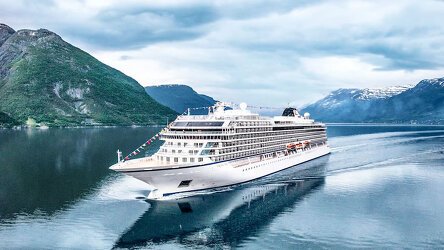
Launched in 2019, the Viking Jupiter is Vikings' newest all-veranda ship, part of a fleet of award winning, state of the art ships incorporating all the comforts & luxuries you would expect from Viking. Read more
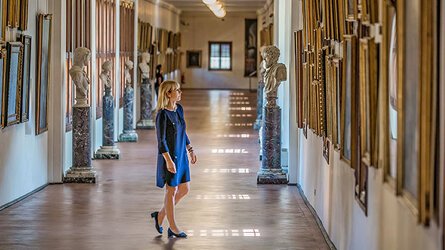
Viking are destination experts. With no casinos or children on board, you can be assured that the focus is firmly on enrichment and education. Read more
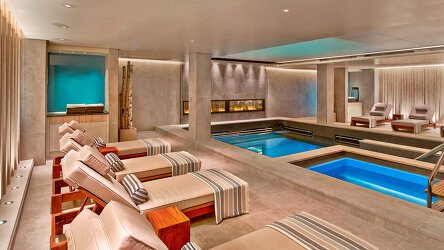
After a day of exploration or just to enhance the relaxation of a day at sea, the on-board Spa will leave you feeling recharged and revitalized. Read more

Viking offer eight on board dining options. Beer, wine and soft drinks are available with lunch and dinner at no additional charge of fee. Read more
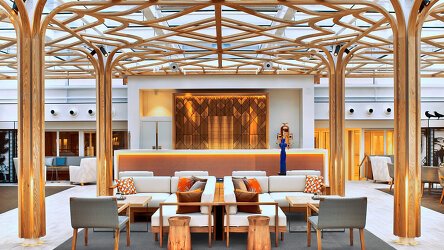
Viking proudly includes all that you need and nothing you do not. A variety of features and services valued at $200 per person per day are standard inclusions in your cruise. Read more
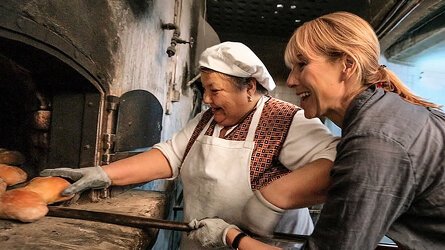
Viking include one complimentary shore excursion in every port of call. Enjoy exclusive entry to cultural treasures and seldom-seen collections around the world. Read more

Viking Jupiter Reviews (4) Most Recent 'Viking Jupiter' Reviews
Our 18-day Viking Cruise was good value for the price, but we had a few disappointments too. The itinerary already included quite a few sea days, but we ended up with even more than scheduled. We were unable to land at the Falkland Islands due to weather (wind and choppy seas), a huge disappointment as this was one of the main reasons we had chosen this cruise. Port Stanley has to be landed by ship’s tender, and we suspect that, had we been an expedition ship with fewer mobility limited passengers, that landing would have been feasible. Additionally, we had to return to Ushuaia 4 hours after departure to offload a medical emergency, meaning that we arrived in Punta Arenas too late in the day to go ashore and do any excursions. As a result, this cruise ended up with far too many sea days for our liking.
Having said that, the ship itself was beautiful, the 4 guest lecturers were knowledgeable and fascinating, the entertainment was excellent, the dining was delicious, and the staff were absolutely fabulous. Viking is certainly a company that prides itself on faultless service and they definitely delivered on that. The photo I am including is of the Perito Morino Glacier which we saw on our pre-cruise trip to Patagonia.
The optional excursions in each port were a little disappointing, not a lot to see ...read more or do in some of the ports and we had to use tender boats in most of the ports which was quite annoying. All in all though, a very good cruise, would definitely recommend doing a Viking cruise. Yvonne from Global Journeys organised our tour, she did a great job.
Brochure
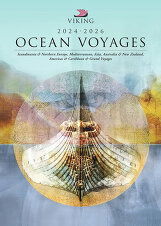
Viking Ocean Cruises (2025-26)
Availability Click on prices below to view cabin upgrades and details
Tour & cruises prices are per person. Prices shown have savings applied, are subject to availability and may be withdrawn at any time without notice. Pricing and trip details are correct at this point in time, however are subject to confirmation at the time of booking and are subject to change by Viking. For cruise itineraries, cabin images are sourced from Viking. These should be treated as indicative only. Cabin inclusions, upholsteries and room layout may differ to the image(s) shown depending on the ship selected and your sailing dates.
